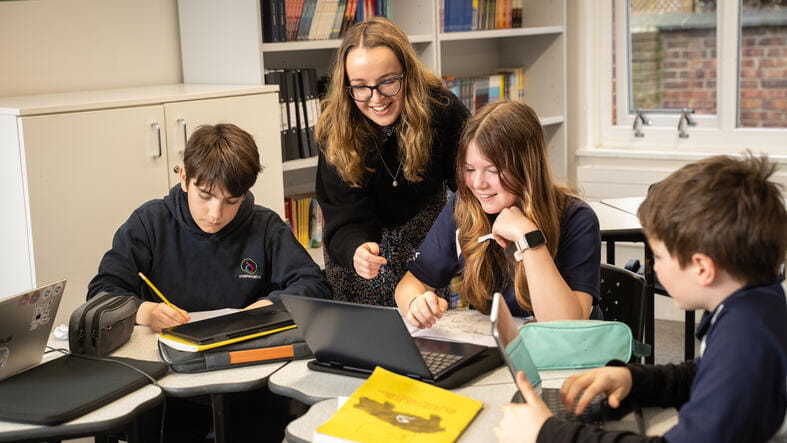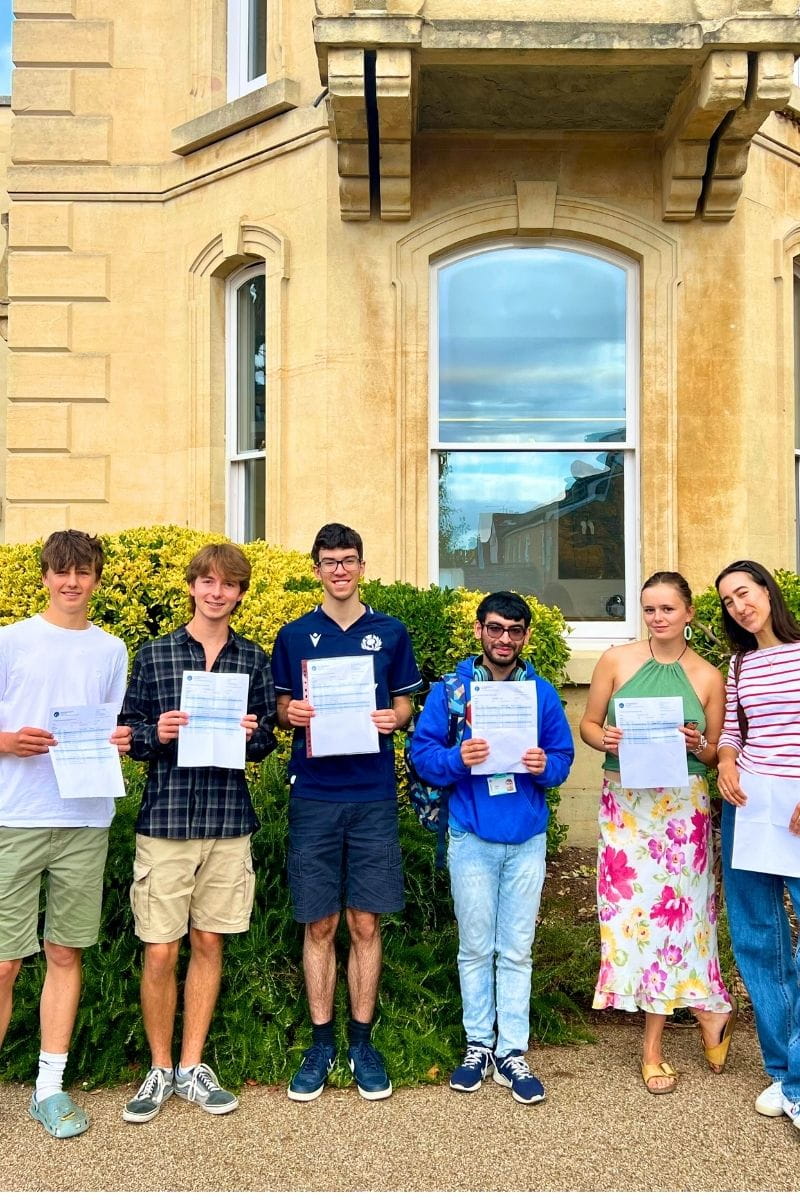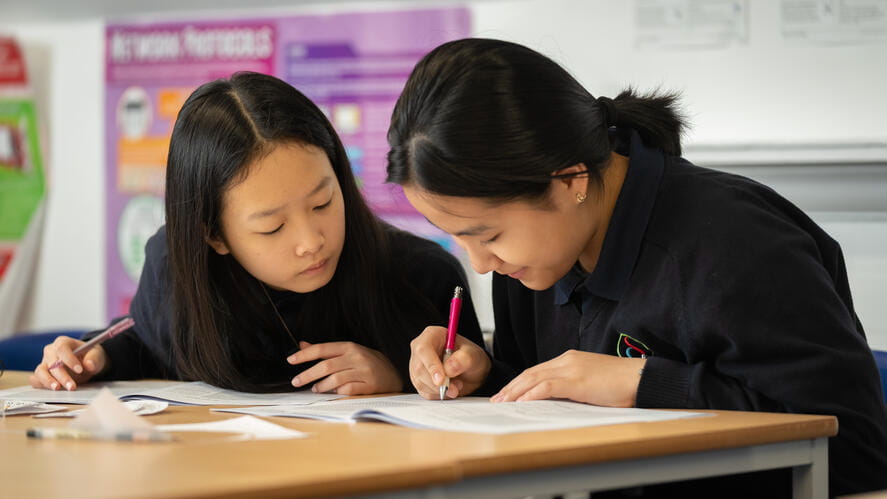Our students have access to an incredible amount of information – more so than any other generation before them. This brings both benefits and challenges. It’s also why it’s so important that we, as a school community, teach our learners how to think, not just what to think.
So, what does it mean to be a ‘critical thinker’?
It means having the ability and awareness to analyse information, ask thoughtful questions, and make considered judgements. Whether that’s assessing the legitimacy of an online news article, navigating social challenges, or finding a solution to complex STEAM problems, being able to think critically and creatively, both in and beyond the classroom, is crucial.
What is critical thinking?
Critical thinking is the art of making clear, reasoned judgements, based on interpreting, understanding, and applying evidence.
It’s a fundamental skill that goes beyond the acceptance of information at face value. Critical thinkers have a desire to delve deeper, question assumptions, and explore different perspectives to arrive at well-informed conclusions.
Why is critical thinking important for students?
In a world full of complex challenges and constant change, there are many benefits to being a critical thinker.
The ability to think critically is essential to success in school, work, relationships, and life in general. Questioning, analysing, and synthesising what we see and hear enables us to solve problems and form considered opinions.
In the classroom, critical thinking skills are important in all subjects and disciplines – whether that’s science and engineering or the arts and humanities.
Outside of lessons, being able to critically assess information helps students to make decisions and navigate the maelstrom of information they have access to.
How do we develop critical thinking skills in students?
One of the fundamental aims of the English National Curriculum, which we teach at d’Overbroeck’s, is to give our students the tools to be critical thinkers who can solve problems, form opinions, and clearly articulate their views.
Through Senior School, the International School, and Sixth Form our teachers use a variety of age-appropriate methods and critical thinking strategies to help our learners develop these skills.
We facilitate discussion
Meaningful conversations give our students the chance to explore different viewpoints. We encourage active participation, respectful listening, and constructive criticism. By engaging in intellectual discourse, our learners refine their critical thinking skills while honing their ability to articulate and defend their positions. One of the ways they do this is through our Model United Nations programme.
We encourage questioning
Curiosity is a fundamental pillar of critical thinking. We encourage our students to ask questions and challenge assumptions in a safe and supportive environment. By nurturing our learners’ inquisitive nature, we seek to stimulate critical thinking and empower them to explore different perspectives.
We evaluate information
In a world of information, it’s important to evaluate everything we see and hear. We give our students the critical thinking tools that help them to assess credibility, bias, and relevance. We also emphasise the importance of distinguishing fact from opinion and encourage learners to question the validity of claims.
We focus on problem-solving
At GCSE and A-level, lessons are packed with critical thinking activities that enable expert problem-solving. Students engage with real-world scenarios that require analysis, synthesis, and decision-making. These activities include group projects and hands-on experiences, including those delivered through our STEAM collaboration with the Massachusetts Institute of Technology.
We encourage creative thinking
One of the ways we inspire our students to think creatively is through open-ended projects. These require them to think outside the box, come up with innovative solutions, and analyse potential risks and benefits. Our teachers use a range of critical thinking strategies, including brainstorming, divergent thinking, and the consideration of multiple perspectives.
We provide support
Developing effective critical thinking skills is an ongoing process. Our teachers offer guidance, modelling, and feedback to help our learners navigate tricky tasks. Learning is personalised to the needs of each student, and the complexity of coursework and curriculum content evolves as our students progress through the age groups.
Is critical thinking the key to lifelong success?
Why is critical important for our students? For many reasons!
An ability to think critically helps them to better understand and interact with the world around them, grow their knowledge, and manage the challenges posed by misinformation.
Academically, being a critical thinker enables students to evaluate the validity of sources, come to reasoned conclusions, and form coherent arguments or positions.
Critical thinking is, therefore, a universal skill – it’s an attribute that will always be relevant, no matter what path, university degree, or profession our students go on to pursue.
For more information about how we develop critical thinking skills in students, please get in touch with our Admissions Team.





.png?h=810&iar=0&w=1080&rev=b4cb8f4879384633b29804e1ca91a8cf&hash=208E243FB7838DAC9E907F2D15EB4BF6)

